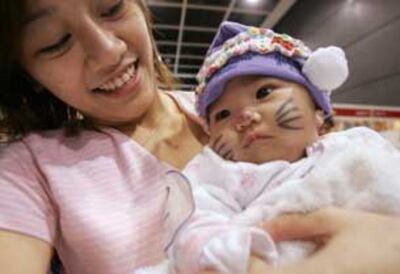HONG KONG—Thousands of parents in China who lost children in the devastating Sichuan earthquake will be permitted to have more children, Chinese officials say, amid a groundswell of public interest in adopting earthquake orphans.
At least 4,000 children are believed to have been orphaned in the devastating 7.9 magnitude quake that hit the southwestern province of Sichuan on May 12, according to estimates by Chinese officials.
Family planning authorities in Sichuan have said China’s “one-child” policy—launched in the 1980s and aimed at stabilizing China’s huge and fast-expanding population—won't apply to couples who have lost a child or whose children have been gravely injured.
Families wishing to have another child can apply for a certificate from the Chengdu Population and Family Planning Committee.
Under the adjusted policy, those who adopt orphans from the earthquake zones will also be exempt from the one-child policy.
Parents whose children were killed or severely injured will receive a subsidy of 600 yuan each from the government until his or her death if he or she is 50 years old.
Subsidies for orphans
The Civil Affairs Ministry and the Finance Ministry are also planning to provide each homeless quake victim who lacks an income with a daily subsidy of 10 yuan and 500 grams of food for three months, starting in late May, the official Xinhua news agency reported.

Orphans, widowed elders with no children, and handicapped persons who lost relatives would receive another monthly subsidy of 600 yuan for three months, the agency said, while those over 60 and living in rural areas will receive a payment of 1,200 yuan from the government.
Chinese netizens have flocked onto Internet bulletin boards, saying they are willing to adopt young children who have lost their parents in the quake, and who are currently being taken care of by volunteers in huge, makeshift refugee camps.
Civil Affairs officials say they have been swamped by phone calls from parents seeking to adopt daily since reports began to emerge of the scale of the catastrophe.
One woman, identified by her surname, Xiong, from the central province of Hubei, said she would like to adopt a child from Sichuan.
"I support this policy adjustment because it makes sense," she said. "It will comfort those who have lost their only child. It will also make a big difference to the future of these children."
Officials cautious
But official media have downplayed the tide of public sentiment, choosing instead to focus on government provision of institutional care such as that provided for the orphans of the 1976 Tangshan earthquake.
Psychologists point to lifelong emotional scars inflicted by such disasters, as children struggle to adjust to the loss of everything familiar to them in the space of a few minutes.
Post-earthquake reconstruction specialist Su Youpo said most quake orphans would prefer a special school or institution to being adopted based on his research in Tangshan quake orphans for decades, according to a report on orphans by Xinhua.
According to Su, children who live in foster families always feel a strong sense of obligation to foster parents, while those placed in institutions were on an equal footing and could help each other.
The agency quoted several experts, including some Tangshan quake orphans, as saying that institutions were a better approach than adoption, as they didn't remove children from their ancestral hometowns.
Under the new family planning rules, families who lost a child within their quota will be able to register any extra children, avoiding punitive fines for births in excess of one per family. Those who lost an unregistered child will be exempt from paying further fines.
Original reporting by RFA's Mandarin service. Director: Jennifer Chou. Translated by Jia Yuan and Chen Ping. Written and produced for the Web in English by Luisetta Mudie. Edited by Sarah Jackson-Han.
